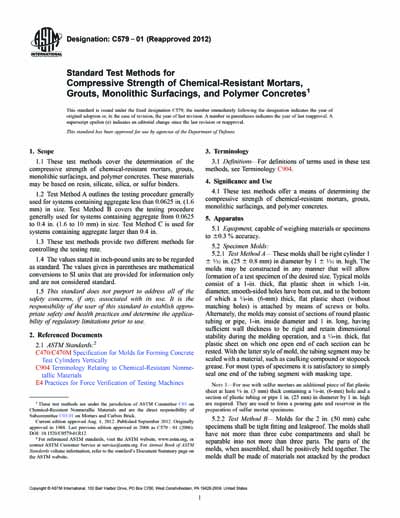Historical
ASTM C579-01(2012)
Standard Test Methods for Compressive Strength of Chemical-Resistant Mortars, Grouts, Monolithic Surfacings, and Polymer Concretes
1.1 These test methods cover the determination of the compressive strength of chemical-resistant mortars, grouts, monolithic surfacings, and polymer concretes. These materials may be based on resin, silicate, silica, or sulfur binders.
1.2 Test Method A outlines the testing procedure generally used for systems containing aggregate less than 0.0625 in. (1.6 mm) in size. Test Method B covers the testing procedure generally used for systems containing aggregate from 0.0625 to 0.4 in. (1.6 to 10 mm) in size. Test Method C is used for systems containing aggregate larger than 0.4 in.
1.4 The values stated in inch-pound units are to be regarded as standard. The values given in parentheses are mathematical conversions to SI units that are provided for information only and are not considered standard.
1.5 This standard does not purport to address all of the safety concerns, if any, associated with its use. It is the responsibility of the user of this standard to establish appropriate safety and health practices and determine the applicability of regulatory limitations prior to use.
Content Provider
ASTM International [astm]






